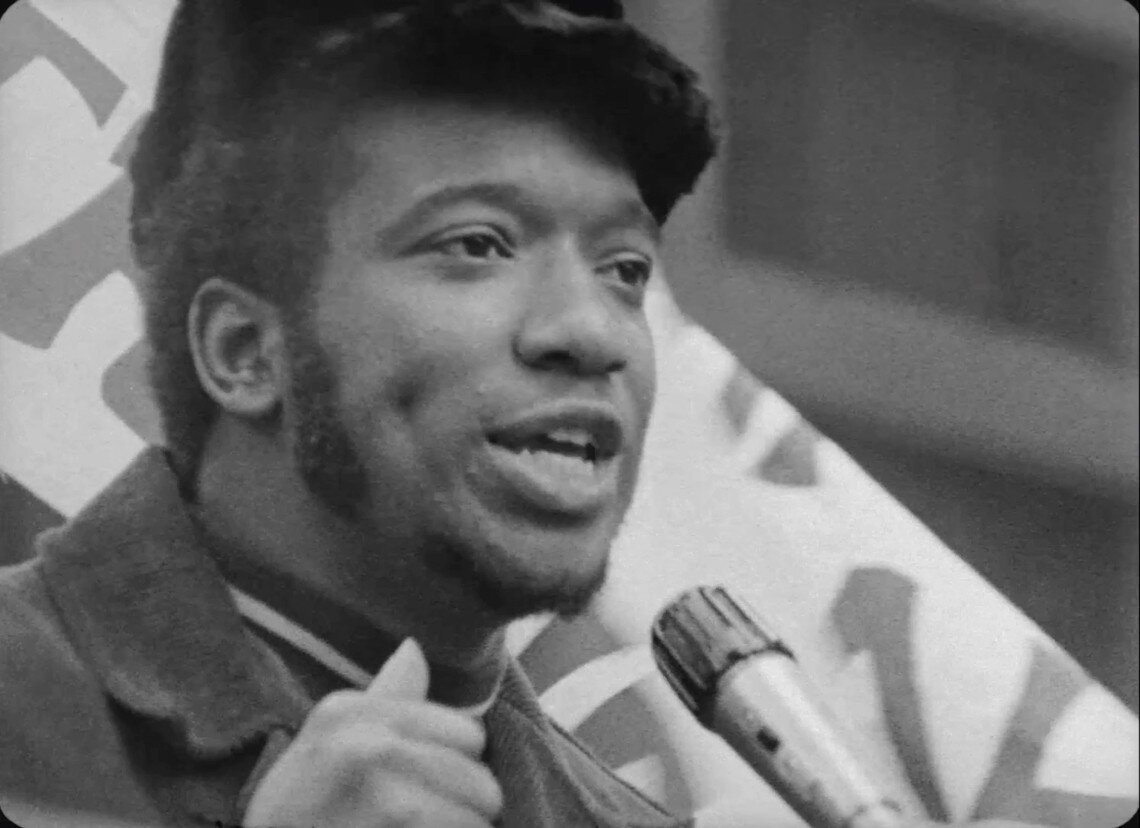Fred Hampton
Fred Hampton [30 August 1948 to 4 December 1969] was an active leader in the National Association for the Advancement of Colored People [NAACP], leading their Youth Council of the organization’s West Suburban Branch. Hampton joined the Chicago chapter of the Black Panther Party [BPP] in November 1968. He quickly rose to a leadership position, becoming the deputy chairman of the Illinois chapter of the Party. He organized rallies, established a Free Breakfast program, and negotiated a peace pact among rival gangs. As a rising leader in the BPP, Hampton became the focus of an FBI investigation. [1]
Hampton rose quickly in the BPP, based on his organizing skills, substantial oratorical gifts, and personal charisma. Once he became leader of the Chicago chapter, he organized weekly rallies, participated in strikes, worked closely with the BPP's local People's Clinic, taught political education classes every morning at 6am, and launched a project for community supervision of the police. Hampton was also instrumental in the BPP's Free Breakfast Program.
He eventually became chair of the Illinois BPP and then moved up to BBP deputy chair.
The Black Panther Party was originally named the Black Panther Party for Self-Defense. This party was a Black Power political organization founded in October 1966 in Oakland, California. The BPP grew with chapters in numerous major cities both in the US and in the United Kingdom. Its inception on October 15, 1966,[10] T BBP’s core practice was its open carry armed citizens' patrols ["copwatching"] to monitor the behavior of officers of police and challenge police brutality.
Open carry was legal but in 1969, FBI Director Hoover described the party as "the greatest threat to the internal security of the country.”
On the evening of December 3, 1969, William O’Neal, who was employed by the FBI to infiltrate the BPP, slipped a powerful sleeping drug into Hampton’s drink then left. Officers were dispatched to raid his apartment. They stormed in and opened fire, killing his security guard. Then they opened fire on Hampton’s bedroom where he laid unconscious from the drug with his sleeping, almost nine-month-pregnant fiancee. After the gunfire, he was found to only be wounded and not dead. Upon that discovery, an officer shot him twice in his head and killed him. The remaining seven Panthers who were not killed were all arrested and indicted by a grand jury on charges of attempted murder, armed violence, and a variety of weapons charges. These charges were eventually dropped when during a later investigation, it was discovered that Chicago Police fired ninety-nine shots while the Panthers only shot once. [2]
THE CHICAGO POLICE AFTER THE RAID THAT KILLED FRED HAMPTON IN 1969.
In 1990, the Chicago City Council unanimously passed a resolution commemorating 4 December 2004, as "Fred Hampton Day in Chicago". The resolution read in part: "Fred Hampton, who was only 21 years old, made his mark in Chicago history not so much by his death as by the heroic efforts of his life and by his goals of empowering the most oppressed sector of Chicago's Black community, bringing people into political life through participation in their own freedom fighting organization.
A fitting title of the upcoming 2021 movie Judas the Black Messiah directed by Shaka King and produced by the Black Panther director, Ryan Coogler, this film aims to provide a different insight into Hampton’s life, focusing on the polarized personalities and values held by Hampton and his close friend and security guard, William O’Neal.
[1] From the United States’ National Archives on African American Heritage.
[2] Ibid.


